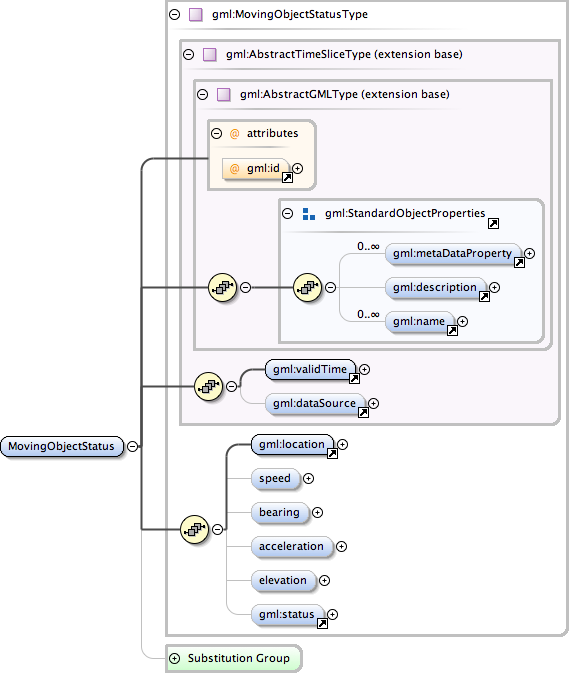| Namespace | http://www.opengis.net/gml | |||||||||||||
|
Diagram
|
 |
|||||||||||||
| Type | gml:MovingObjectStatusType | |||||||||||||
| Type hierarchy | ||||||||||||||
|
Properties
|
|
|||||||||||||
|
Used by
|
|
|||||||||||||
| Model | gml:metaDataProperty* , gml:description{0,1} , gml:name* , gml:validTime , gml:dataSource{0,1} , gml:location , gml:speed{0,1} , gml:bearing{0,1} , gml:acceleration{0,1} , gml:elevation{0,1} , gml:status{0,1} | |||||||||||||
| Children | gml:acceleration, gml:bearing, gml:dataSource, gml:description, gml:elevation, gml:location, gml:metaDataProperty, gml:name, gml:speed, gml:status, gml:validTime | |||||||||||||
|
Instance
|
|
|||||||||||||
|
Attributes
|
|
|||||||||||||
|
Source
|
|
|||||||||||||
| Schema location | http://schemas.opengis.net/gml/3.1.1/base/dynamicFeature.xsd |